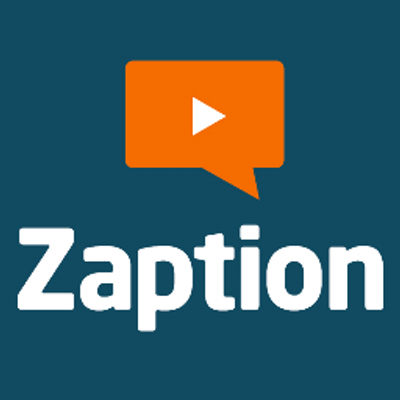Vocaroo: http://vocaroo.com/i/s16jQwnFWRam
Ideal for students (or teachers) who have trouble with public speaking. You could use this to practice a presentation, listen to yourself making a speech or record something to present to an audience. This simple, web-based recording tool allows you to record and share a link of yourself saying what you need to say. A perfect solution for students presenting to their peers, teachers making recordings for their kids, or pre-recording some info you've been asked to share at that dreaded faculty meeting next week (eep!). Bet you never thought the Gettysburg Address could sound so silky smooth!
PowToon describes itself as a "minimalist, user friendly and intuitive presentation software that allows someone with no technical or design skills to create engaging professional “look and feel” animated presentations." The web-based service also has an education label designed to allow teachers and students to create content that is "visually engaging, captivating and fun to make." I find it hard to disagree with them. I mean, check out the wicked fun and welcoming library PowToon linked above. Kinda makes you wanna check us out, right? :)
This video creation tool would be great for flipping content and saving instructional time. If you've been flipping your classroom, or just single lessons, it's a pretty easy way to add assessments, or in my case, simple accountability, to instructional videos to help students with research or use instructional technology. The sample above is a flipped lesson on how students can use Wikispaces to create and share content with the classmates by building a class wiki; like Wikipedia!
Sock Puppets: https://www.youtube.com/watch?v=bsDOXg-wkHM
Ok, this tool might seem relegated to the elementary scene, but this tool is plain, old-fashioned fun, just re-imagined! The premise is simple: pick out some sock puppets, create a setting with props and start recording voices for your characters as they deliver your message while moving around on stage. Created with Sock Puppets for iPhone and iPad, this scene depicts myself and my librarian colleague, Mrs. Dion (thanks for lending your voice in the Zaption video above!), talking about "genrefying" the high school fiction collection. Talk about taking something fairly mechanical and boring in process and explaining it in a fun way. Think of all the ways you could deliver info to your students!
Now that I've shared a little about what I've done with web 2.0 tools, I'm hoping you'll share some of your ideas, too! What's your favorite Web 2.0 tool to use with students?
Ok, this tool might seem relegated to the elementary scene, but this tool is plain, old-fashioned fun, just re-imagined! The premise is simple: pick out some sock puppets, create a setting with props and start recording voices for your characters as they deliver your message while moving around on stage. Created with Sock Puppets for iPhone and iPad, this scene depicts myself and my librarian colleague, Mrs. Dion (thanks for lending your voice in the Zaption video above!), talking about "genrefying" the high school fiction collection. Talk about taking something fairly mechanical and boring in process and explaining it in a fun way. Think of all the ways you could deliver info to your students!
Now that I've shared a little about what I've done with web 2.0 tools, I'm hoping you'll share some of your ideas, too! What's your favorite Web 2.0 tool to use with students?




